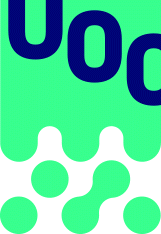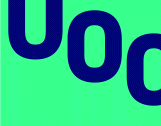
Photo by Raphael Schaller on Unsplash
Loli Burgueño, researcher of the research group SOM Research Lab of the IN3, wins the best Paper Award of the international Conference MODELS 2018 for the paper "Expressing Confidence in Models and in Model Transformation Elements".
The article deals with the fact that modeling the expression and management of uncertainty, both in the data and in the operations that manipulate it, is a critical issue in those systems that work with physical environments. Measurement uncertainty can be due to several factors, such as unreliable data sources, tolerance in the measurements, or the inability to determine whether a certain event has actually happened or not. In particular, this contribution focuses on both measurement uncertainty and the confidence on the model elements, i.e., the degree of belief that we have on their occurrence. Furthermore, this work deals with the propagation of such an uncertainty through model transformations, whose rules can also be subject to uncertainty.
Click here to see the article.
Moreover, within the framework of the international conference MODELS 2018, the article titled "A feature-based survey of model view approaches", and written by Hugo Bruneliere, Erik Burger, Jordi Cabot, main researcher at the research group SOM Research Lab of the IN3, and Manuel Wimmer has been awarded as the 2018 best paper award in the journal on Software and Systems Modeling (Sosym), doi: 10.1007/s10270-017-0622-9, Springer. 2017.
This paper focuses on the fact that when dealing with complex systems, information is very often fragmented across many different models expressed within a variety of (modeling) languages. To provide the relevant information in an appropriate way to different kinds of stakeholders, (parts of) such models have to be combined and potentially revamped by focusing on concerns of particular interest for them. Thus, mechanisms to define and compute views over models are highly needed. Several approaches have already been proposed to provide (semi)automated support for dealing with such model views. This paper provides a detailed overview of the current state of the art in this area. To achieve this, we relied on our own experiences of designing and applying such solutions in order to conduct a literature review on this topic. As a result, we discuss the main capabilities of existing approaches and propose a corresponding research agenda. We notably contribute a feature model describing what we believe to be the most important characteristics of the support for views on models. We expect this work to be helpful to both current and potential future users and developers of model view techniques, as well as to any person generally interested in model-based software and systems engineering.
You can see here to see the article.
MODELS, the 21th International Conference on Model Driven Engineering Languages and Systems, is the premier conference series for model-driven software and systems engineering, and is organized with support of ACM SIGSOFT and IEEE TCSE. Since 1998, MODELS has covered all aspects of modeling, from languages and methods, to tools and applications. Attendees of MODELS come from diverse backgrounds, including researchers, academics, engineers and industrial professionals.
Congratulations!!

